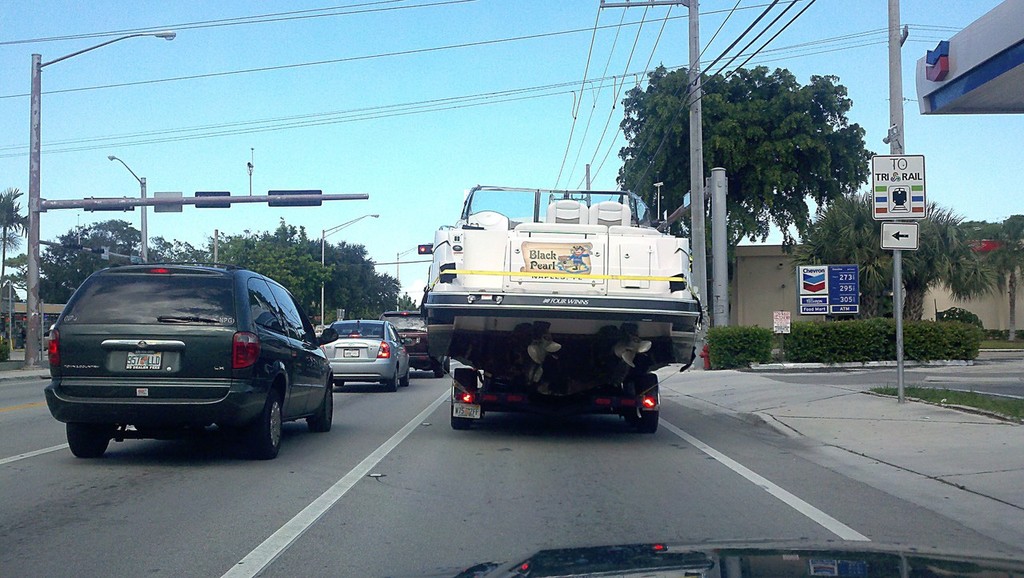BoatUS - Trailering club offers discount wide-load permit service
by D. Scott Croft on 11 Mar 2011

It’s not wise to be caught without an "oversize" permit if your boat is wider than eight-and-a-half feet. - BoatUS BoatUS Press Room
BoatUS - If your boat has a beam greater than eight-and-a-half-feet, 47 states as well as the District of Columbia require a wide-load or 'oversize' permit to tow it over the road. If you're towing the boat locally, getting one permit isn't that hard if you are familiar with the process.
However, for longer trips across state lines, getting the necessary multiple permits isn't that simple because each state requires its own permit. That's a lot of time and paperwork. To help make this process easier, the BoatUS Trailering Club now offers a Wide-Load Permit Service in partnership with Mercury Permit Services.
'We can help you navigate your way through each state's complicated oversize permit application process, figure out which states have additional insurance requirements, identify those that require a US DOT number, if you need a pilot car, the best routes and which states allow weekend travel,' said BoatUS Trailering Club Director Beth McCann.
Trip Planning Tips:
The February 2011 issue of BoatUS Trailering Magazine recently highlighted these permit challenges as well as some trip planning tips in the story 'The Wild World of Wide' found at BoatUS.com/trailerclub/wide-permit.asp. They include:
* Texas and Ohio are the most problematic in securing oversize permits. Texas requires a $10,000 surety bond that costs a few hundred dollars and requires 'going through a number of hoops,' says Steve Thomas of Mercury Permits. Ohio requires a specific form be faxed directly to a state office from the boater's insurance company, which can add delays.
* California is a close 'runner-up' - The Golden State has a permit requirement for towing on numbered highways while each county as well as some cities also require a permit.
* In Virginia, a number of cities such as Suffolk, Chesapeake and Newport News all require separate permits, so Thomas recommends avoiding them if possible.
* In most states, permits are only good for a specified amount of time (usually three to 10 days). In New York State it's only good for one day and the Thruway and New York City require separate permits.
* Only one-third of states allow travel after sunset.
* In many states, long bridges that cover significant stretches of water have additional restrictions, and will halt wide-permit tows during periods of high winds.
* The legal height for an oversize permit is 13 feet, six-inches. However, in places like the Northeast, many bridges (lower than 13 feet) were already in place before this was the legal height, which could lead to an accident. 'This is where we can help with route planning to ensure you don't hit a low bridge,' said Thomas.
* Interstate highway bridge clearance is generally 16-feet, but there are exceptions, such as in Pennsylvania where clearance is less and detours are required.
* Before you trailer a wide-load, check your boat and tow vehicle insurance policies as some put limits on boat size. Also understand that boat insurance polices cover the actual loss of the boat, and your motor vehicle policy would potentially provide liability coverage.
* Have an accident? You'd better have an oversize permit or your insurer can legally deny the claim.
www.BoatUS.com/trailerclub
If you want to link to this article then please use this URL: www.sail-world.com/81247